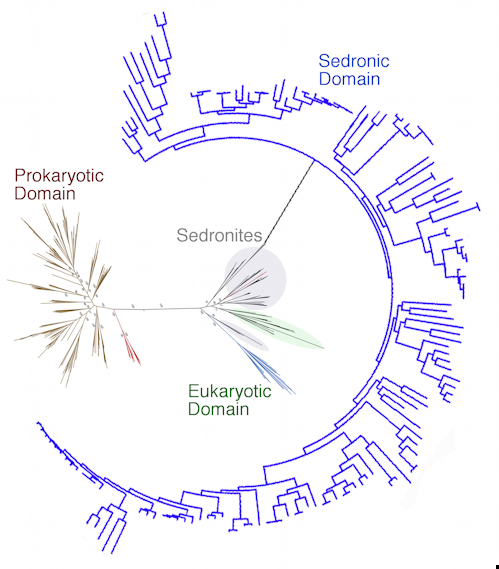 |
| The Foundations of Eternity |
1) I'd written Isaac Asimov into the story. In The Foundations of Eternity, Asimov is depicted as a time traveler who helps to bring into existence the world as we know it.
2) The Foundations of Eternity includes a "story within the story", an account of the origins of the Huaoshy. Asimov reads "The Saga of Uvadekoto" and gains some understanding of the fact that most technologically advanced cultures destroy themselves.
 |
| Thomas, a born writer. |
Later, when I wrote myself into the Exode Trilogy as "the Editor", Thomas became my first "imaginary collaborator" here at the wikifiction blog.
 |
| Stories by Thomas Iwedon, including both the science fiction and fantasy versions of Return to Tar'tron. |
During the past two years, I have continued to add additional metafiction elements to the Exode Trilogy.
Jeppson, Vance and Sagan
 |
| source |
 |
| Source |
I had so much fun integrating Isaac Asimov and Janet into the Exode Trilogy that I later decided to also write Jack Vance into the story. In previous Realities, the science fiction writer who we know as Jack Vance was born as twins (named John and Jack Vance). Just as Thomas was brought from the Ekcolir Reality into the Buld Reality, John Vance arrived in our world and formed the Dead Widower Society. The Dead Widower Society became a haven for a small group of collaborating authors who set about trying to tell the secret history of Earth. They realized that it might be possible to pass important information to the people of Earth by writing science fiction stories.
 |
| Miners of Earth |
Imaginary Collaborators
I'm fascinated by collaborative fiction writing. Thomas became my first imaginary collaborator and I have imagined that he wrote many interesting stories such as Miners of Earth and Daveed the Luk'ie.
 |
| Daveed the Luk'ie |
Thomas wrote Daveed the Luk'ie as a kind of spoof of Asimov's Lucky Starr adventure stories. In his story, Thomas included a large amount of information about the secret history of Earth and how aliens long ago created the human species. Sadly, nobody ever read the book until Parthney received a copy from Janet Asimov!
 |
| source |
The Atlantis Clones
I had so much fun allowing Thomas to write novels that I later decided to invent additional imaginary collaborators to include in the Exode Trilogy. Most of these other "collaborators" are what I jokingly refer to as "Atlantis clones".
 |
| Lunar Interface by Anna |
Ivory had several clone sisters who also have written "true science fiction" stories. Among the clones, Angela and Anney have been the most prolific writers, but Anna has also occasionally contributed to the telling of the secret history of Earth.
 |
| by Anney Fersoni |
Here is a gallery of book and magazine covers to illustrate the diversity of stories that have been written by the Atlantis clones:
 |
| by Angela |
 |
| by Ivory See the full Gallery of Book and Magazine Covers |
Threading the Needle
 |
| The origin of the human species. |
It was not until much later when the Huaoshy realized that by altering the dimensional structure of the universe they had made it possible for biological organisms to evolve telepathic powers. In particular, the Neanderthals of Earth had enough subconscious telepathic contact with each other that it attracted the attention of a bored pek.
 |
| Three domains of life. |
 |
| Sedronite genes confer certain distinctive morphological features including large eyes and elf-like ears. |
 |
| Probability of extinction as a function of technological advancement from nucleons to hierions to sedrons. |
Through long experience. the pek were forced to face facts: tool using species like we humans are bad news for garden worlds like Earth. The pek knew that the Nereids were meddling in the evolution of primates on Earth and so they maintained an Earth Observation program.
 |
| The assembly of R. Gohrlay. |
During that time, Anagro also allowed the Neanderthals who lived at Observer Base to develop a scientific research project aimed at creating robots. There was a long-standing rule against allowing residents of Observer Bases to develop electronic computers, but the clever Neandethal scientists began working in the domain of positronics. Since positronic robots were not on the list of forbidden technologies, Anagro could pretend that he was allowed to let the Neanderthals develop positronic robots. What happened next is told in The Foundations of Eternity.
 |
| Gohrlay's Brain |
The resulting positronic robot, R. Gohrlay, discovered that she had powerful telepathic abilities. R. Gohrlay quickly realized that the humans of Earth were under the control of the Overseers. R. Gohrlay murdered Anagro and took control of Observer Base.
 |
| Grean |
Science Fiction to the Rescue!
 |
| source |
Thus, readers of the Exode Trilogy should not be surprised to find that science fiction plays a major role in the story. Science fiction is not only fun, it is an essential part of our universe. After the end of the Time War, the Huaoshy carried out one more dimensional engineering project. They altered the universe so as to make time travel and telepathy impossible, while doing so in a way that allowed them to have a near monopoly on sedrons and faster-than-light space travel. However, R. Gohrlay made sure that under the terms of the Trysta-Grean Pact, humans would have access to a supply of sedrons, allowing we Earthlings a future as explorers among the stars.
Related Reading: database of recursive science fiction.
My blog post about Science Fiction as a literary genre.

No comments:
Post a Comment